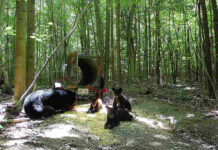SALEM, Ohio — Phony lottery winnings and “discounted” name-brand luxuries have been long-time favorites of scam artists. Their too-good-to-be-true offers have emptied bank accounts and left victims helpless to do anything about it.
But now, scammers are targeting a new group. Farmers — and anyone else who buys or sells agricultural goods — should be on the look out for suspicious offers.
South Carolina
Recently, the South Carolina Department of Agriculture reported that a scam artist used ads in the department’s Market Bulletin to buy hay, livestock and other agricultural items.
The scam is called Advance Fee Fraud and works like this: The seller (victim) advertises an item and receives an offer to buy it. Buyer and seller agree on a cost, but when the check arrives, it exceeds the original price. The buyer asks the seller to send the difference back or to a third party.
The check looks legitimate, but after it is deposited and the extra money is wired elsewhere, the seller will discover the check is fraudulent. The money he or she wired is gone for good.
Stephen Hudson, public information coordinator for the South Carolina Department of Agriculture, said he’s not sure if the scam is still going on in his state. However, if you’re buying or selling any kind of item to someone you don’t know, it’s best to use caution.
Signs of a scam
Scammers also invaded The Hay Barn, an online marketplace for hay-related items. According to The Hay Barn, scammers operate by e-mail and those e-mails usually have some common tell-tale signs:
If you’re concerned about a business deal of any sort, call your bank. Information from the South Carolina Department of Agriculture said bank employees are trained to look for signs of fraud.
Advance fee fraud, like the one in South Carolina, costs consumers and banks millions of dollars every year, according to the department of agriculture.
Landscapers, beware
Another popular scam currently crossing the country targets landscape contractors. In this scam, a company gets a letter from someone claiming to be affiliated with the U.S. Department of Transportation.
The letter states that the company is a prospective contractor for a procurement issued by the U.S. Department of the Treasury. As such, the company is required to sign an “authorization to release financial information” and fax it to the department of transportation.
The “authorization” includes all of the company’s banking information. The letter is, of course, not from the department of transportation, but from a scammer who uses the information to drain the company’s bank account.
Scammers who use this method are hard to trace because they are usually located outside of the U.S.









